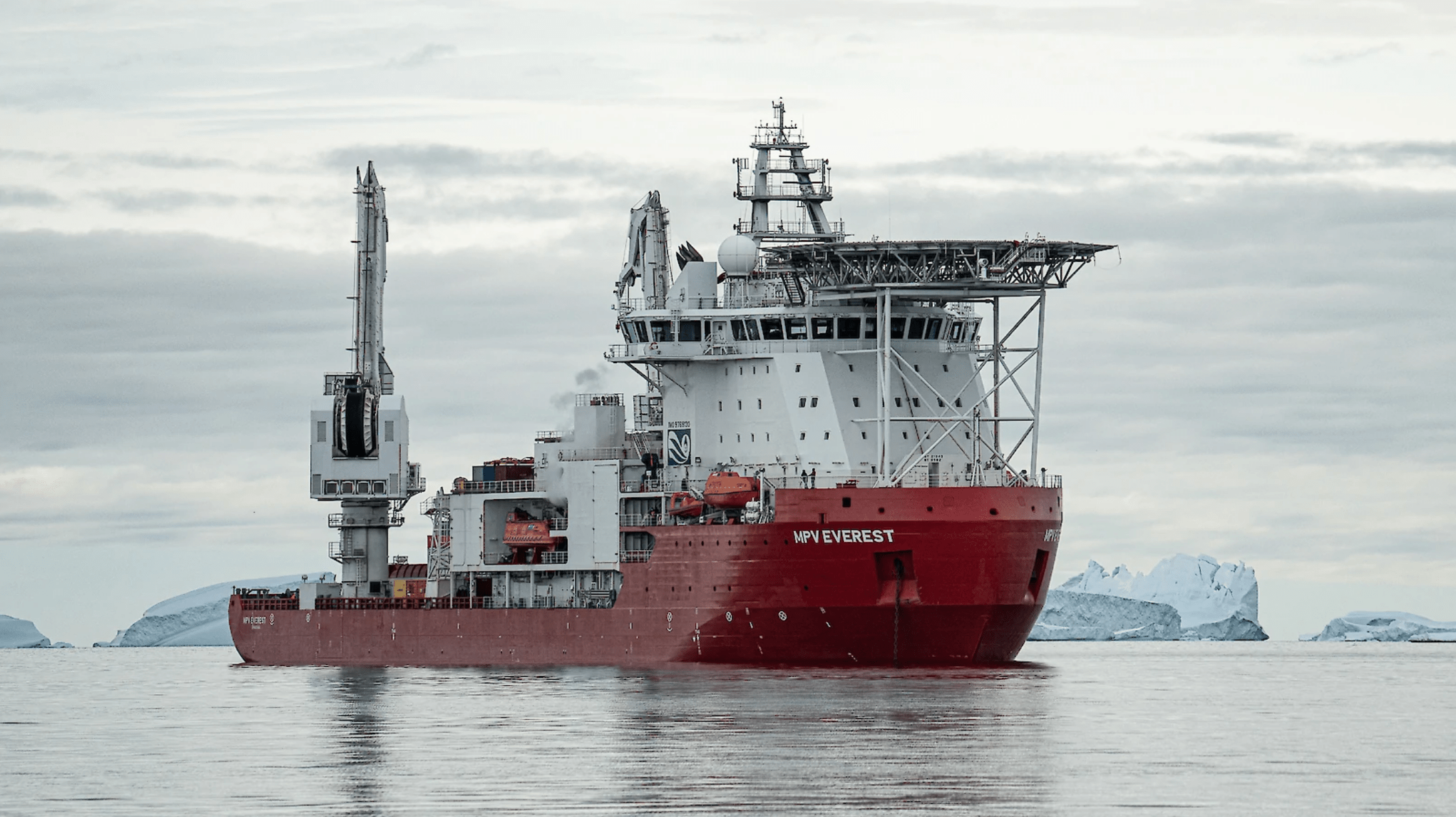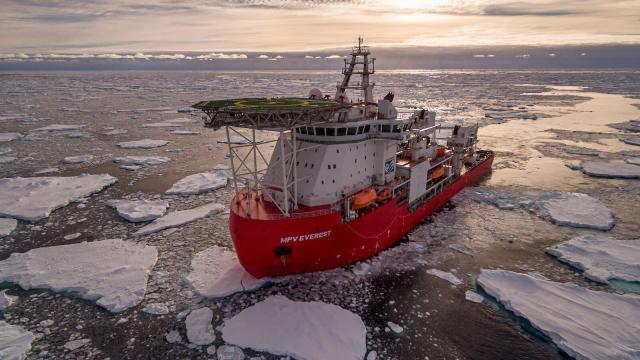None of the 109 expeditioners and crew onboard the MPV Everest were hurt when a fire broke out in an engine room, but the beleaguered Antarctic resupply vessel still has 3,219 km to go in its long journey back home to Australia.
The port-side engine room of the MPV Everest — an ice class multipurpose construction vessel — caught fire during the afternoon of Monday, April 5, according to the Australian Antarctic Division. The ship, having dropped off a year’s worth of supplies to two Antarctic research stations, was less than a week into its journey to Hobart, Australia when the incident happened.
The engine room “was quickly isolated to contain the fire, before it was extinguished by the fire suppression systems,” Charlton Clark, general manager of operations and safety at the Australian Antarctic Division, explained in a statement. The vessel has “maintained full power capabilities and is currently continuing its course northwards at 9 knots, using a separate starboard engine room,” he added.

As the Australian Antarctic Division points out, of the 109 people on board, 72 are returning from their expeditions in Antarctica — some after a year and a half. The ship is currently travelling in the Southern Ocean, approximately 1,700 nautical miles (3,148 kilometres) from Perth, Australia. No injuries are reported, but the fire destroyed two undisclosed vessels on board the ship, the Guardian reports.
The ship was supposed to arrive at a port in Hobart in mid-April, but no decision has been made as to whether the vessel should dock earlier at an alternate location. The Australian Maritime Safety Authority is aware of the situation and has asked ships located nearby to provide assistance if necessary.
Expeditioners and crew had already faced considerable challenges, as thick sea ice off the Mawson coast prevented Everest from getting close to the Antarctic shore. Helicopters, having to fly more than 120 kilometres each way, had to make multiple journeys, in which 2,495 kg of supplies were delivered each day. In total, 3,856 kg worth of “essential and priority cargo,” were transferred to the Davis and Mawson research stations in east Antarctica, according to the Australian Antarctic Division. The voyage home finally began on April 1.
[referenced id=”1518875″ url=”https://gizmodo.com.au/2020/10/after-more-than-a-year-on-the-ice-the-biggest-arctic-research-mission-is-complete/” thumb=”https://gizmodo.com.au/wp-content/uploads/2020/10/13/mentdbqttltfbbflchx0-300×169.jpg” title=”After More Than a Year on the Ice, the Biggest Arctic Research Mission Is Complete” excerpt=”The largest Arctic research campaign in history just came to a close. For more than a year, a rotating group of roughly 500 scientists and staffers have been travelling the region on a research vessel called the Polarstern as part of the Multidisciplinary drifting Observatory for the Study of Arctic…”]
Maree Riley, Australian Antarctic Division organizational psychologist, said the families of the expeditioners were informed of the fire and told that no one was hurt. That said, Riley told the Guardian that “some people have been shaken by this,” and the incident could be traumatic for some.
Once home, the cause of the fire will be investigated by the ship’s owner, Maritime Construction Services, along with the relevant shipping and safety authorities if needed.
